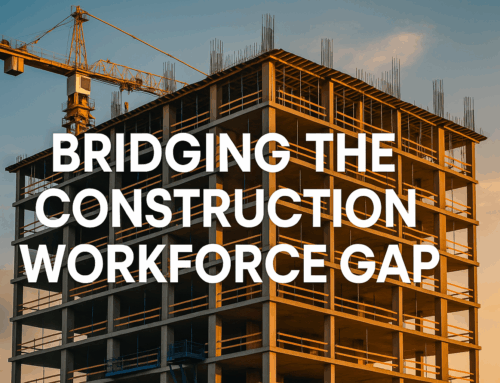Demand for some positions in commercial construction rise and fall. Others seem to always be in demand, no matter what the market is like. In this post, we will explore what’s in demand now, and what skills, experience, and education you need to fill these high-demand roles.
Estimators
One position that’s currently in demand is the role of Estimator. In fact, this role is an excellent place to be in commercial construction, because it remains in demand whether the market is boom or bust. Estimators are needed when times are good because there are so many jobs to bid on. And they are needed when times are slow since estimates are always needed to get new work. There are two major types of estimating in the commercial construction industry – hard-bid and conceptual.
Hard-Bid Estimators
A hard-bid estimator has a set of building plans and uses those plans to add up the necessary materials to complete the project. They crunch the numbers to come up with a final estimate. Companies look to hard-bid estimators to give them the bottom line number, and the decision is made based on the lowest number given by an estimator. The hard-bid process is pretty cut and dry.
Conceptual Estimators
A conceptual estimator doesn’t have a plan to work with other than a description of the construction project idea. They may have what’s called a “paper napkin sketch,” and they fill in the details in their mind to figure out the associated costs without a plan. They collaboratively in the process to value-engineer the project from the beginning. Conceptual Estimators see ways to make the project more efficient at the outset, and make their recommendations accordingly. The demand for conceptual estimators is especially high since they have a unique set of skills.
Win-Win
While working with a hard-bid estimator can sometimes feel combative and bottom-line oriented, working with a design/build project is often a win-win for both sides. It’s a relationship-driven process where the construction company is involved from the beginning. The preconstruction/estimating department makes recommendations on cost and efficiency from the start. Arguments with the architect over details are eliminated. The conceptual estimator understands the building project at a high-level. This model allows the company to choose a builder they like instead of just going for the lowest bid. In this case, it’s more profitable for the construction firm, and often the company saves money through efficiency in the building over time. For both sides, this model is often more consultative, enjoyable and less combative.
Education, Skills & Experience
To fill the role of Estimator, and especially to fill the role of Conceptual Estimator, you will likely need a degree in construction or civil engineering. Other skills and desirable traits for this position:
- Competitive minded
- Sales oriented
- Excellent computer skills
- Detail oriented
- Passion to win the deal
- Deadline driven
Sectors with Mobility
Within estimating, there are niches that are also in demand. Here are several areas of growth within construction that allow a high degree of mobility:
- Healthcare/Hospital
- Pharmaceutical/Biotech
If you have experience in healthcare or hospital construction, you can shift laterally to other niches quite easily, but it can be more difficult the other way around.
These are several areas of growth and demand in commercial construction. In the coming weeks, we’ll cover more positions and sectors that are seeing growth along with what you need to know to be competitive in those roles.
Are you ready to land your dream job?
If you are searching for an opportunity in the construction industry, contact The Birmingham Group today to discuss your career path.






